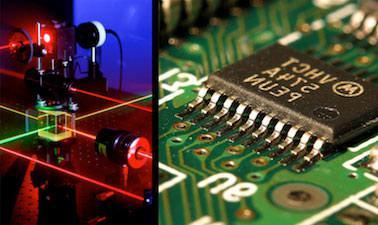
It is illustrated with a wide range of devices, placing a strong emphasis on new and emerging technologies. Applications presented include diodes, transistors, photodetectors, solar cells (photovoltaics), displays, light emitting diodes, lasers, optical fibers and optical communications, photonic devices, magnetic data storage, motors, transformers and spintronics.
This course is part of the xMinor in Materials for Electronic, Optical, and Magnetic Devices XSeries.
What you'll learn
Part 1:
- The origins of semiconductor properties
- Carrier action in semiconductors: drift, diffusion, recombination and generation
- The behavior of p-n junctions at equilibrium and under bias
- The derivation and application of the ideal diode equation, and how real diodes differ from ideal diodes
- Operating principles of bipolar junction transistors and MOSFETs
Part 2:
- The fundamental operating principles of photodevices
- LED and heterojunction laser materials selection and design
- Fundamentals of organic electronics and liquid crystal displays
- An overview of photonic systems
- Optical fibers: dispersion, losses, and design choices
Part 3:
- Fundamentals of magnetism
- The role anisotropy plays in the magnetic behavior of materials
- The operating principles of transformers and DC motors
- How data is stored on hard disks
- Principles of optical and magnetooptical storage
